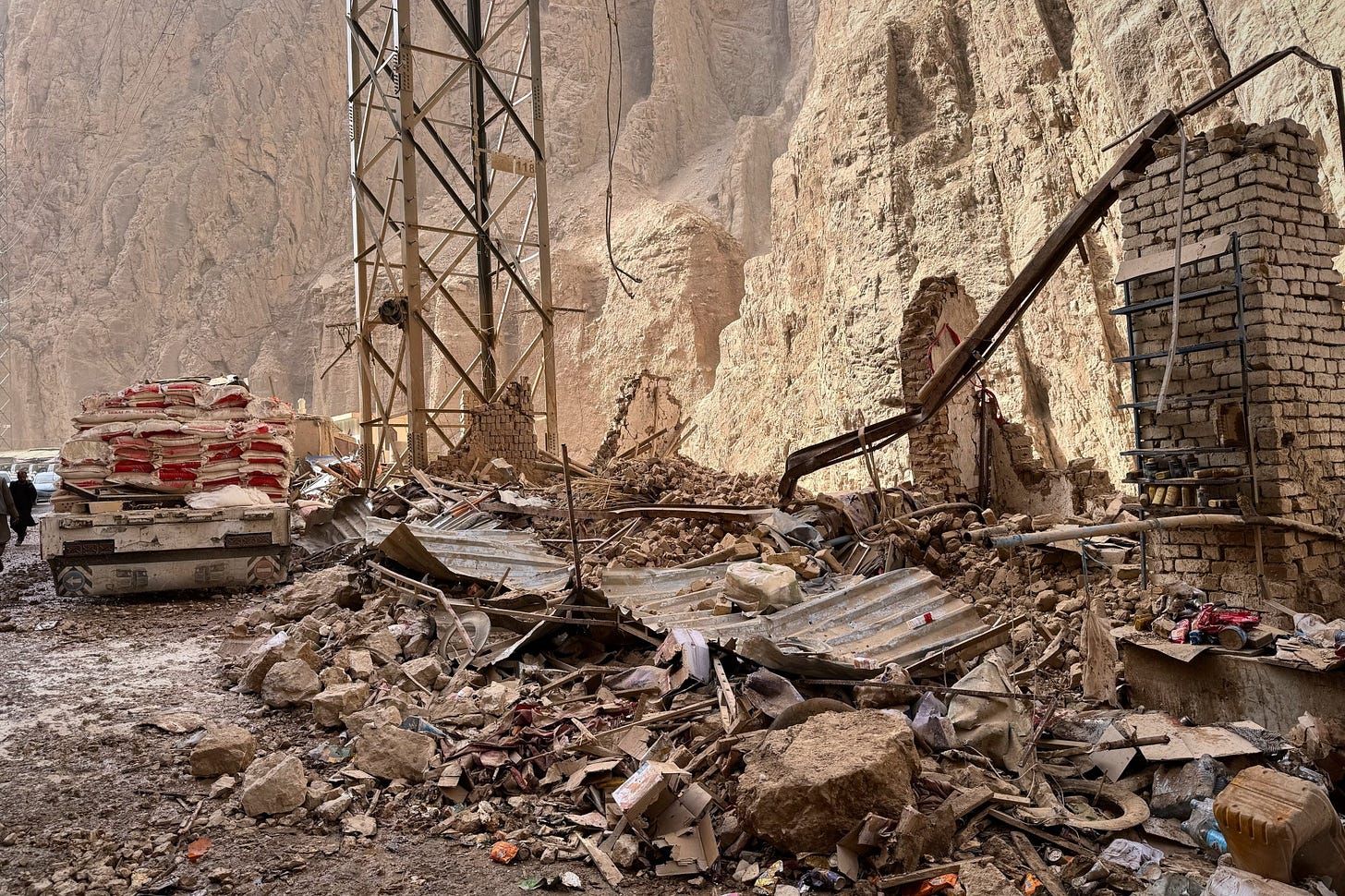The Indifference Quake
Why Global Neglect Collapses More Than Just Buildings
A powerful earthquake has once again ravaged Afghanistan, but the true devastation lies not just in the collapsed structures, but in the global silence that follows. This article confronts the moral apathy that allows such suffering to become background noise, urging us to recognize the deeper collapse of human solidarity.
The Shaking Earth, The Shaking Soul
When the earth violently convulses, as it recently did near Mazar-i-Sharif in Afghanistan, leaving behind crumbled homes and shattered lives, the physical devastation is undeniable. But as I watched the reports—the death toll rising, families sleeping outdoors in fear, the iconic Blue Mosque showing damage—I couldn’t help but feel a deeper, more insidious tremor: the quiet quaking of our collective conscience. We are witnessing not just buildings fall, but a dangerous comfort take root, where the suffering of distant populations becomes a fleeting headline, easily scrolled past. This isn’t merely a natural disaster; it’s a profound moral challenge to our humanity.
The Architecture of Apathy
The thesis here is simple: the physical collapse in Afghanistan is alarmingly mirrored by a moral collapse of global responsibility. It’s an intellectual failing to believe that we are somehow disconnected from these distant agonies. Yet, our modern, hyper-connected world paradoxically fosters a profound sense of detachment. The antithesis, then, is that our very advancements, our constant access to information, can numb us. We see the images, read the numbers—dozens dead, hundreds injured—and instead of feeling compelled to act, we become desensitized. This isn’t just about ‘donor fatigue’; it’s about a fundamental erosion of active empathy.
The sad truth is that most evil is done by people who never make up their minds to be good or evil.
– Hannah Arendt
Arendt’s chilling insight into the banality of evil reminds us that it’s often not malicious intent but a profound lack of thought, a refusal to truly engage with reality, that allows immense suffering to persist. This ‘thoughtlessness’ is the very foundation of our global indifference to Afghanistan’s plight.
Echoes of Neglect and Denial
We must place this tragedy within its broader context. Afghanistan has been a battleground for decades, a nation buffeted by geopolitical ambition and its own internal struggles. Each new crisis—be it famine, conflict, or earthquake—compounds layers of historical neglect. The international community, often quick to intervene politically, has been agonizingly slow to provide consistent humanitarian relief, leaving communities perpetually vulnerable. This pattern of intermittent attention followed by long periods of forgetfulness creates a dangerous cycle. It fosters an illusion of progress when aid sporadically arrives, only to retreat, leaving the groundwork for future catastrophes.
It is in the spaces of global silence, the moments when the cameras turn away, that the true cost of our collective comfort is paid. We see human weakness in this predictable pattern: the initial shock, the brief flurry of concern, and then the inevitable fade into the background as other news cycles dominate. This addiction to comfort, this desire to avert our gaze from unpleasant realities, is a universal flaw that cuts across all cultures and political affiliations.
Rebuilding More Than Walls, Reclaiming Empathy
The synthesis demands that we actively resist this inertia. It calls us to recognize that our humanity is intrinsically linked to the fate of those in Balkh and Samangan. What are the existential stakes? Nothing less than the integrity of our moral compass, the very meaning of our interconnected world. We cannot allow ourselves to become mere spectators to a recurring tragedy. We must not only offer aid, but also bear witness, holding the space for the long, painful process of recovery. This means understanding that the damage to the Blue Mosque is not just a loss for Afghanistan, but a fracture in our shared human heritage.
Attention is the rarest and purest form of generosity.
– Simone Weil
Weil’s words are a potent reminder that true help begins not with grand gestures, but with the simple act of sustained attention. We must cultivate a deep, sustained awareness of the suffering of others, not just when disaster strikes, but in the long aftermath of recovery and reconstruction. Only then can we hope to rebuild not just the physical structures, but the broken architecture of global solidarity and reclaim the moral authority to call ourselves truly human.



